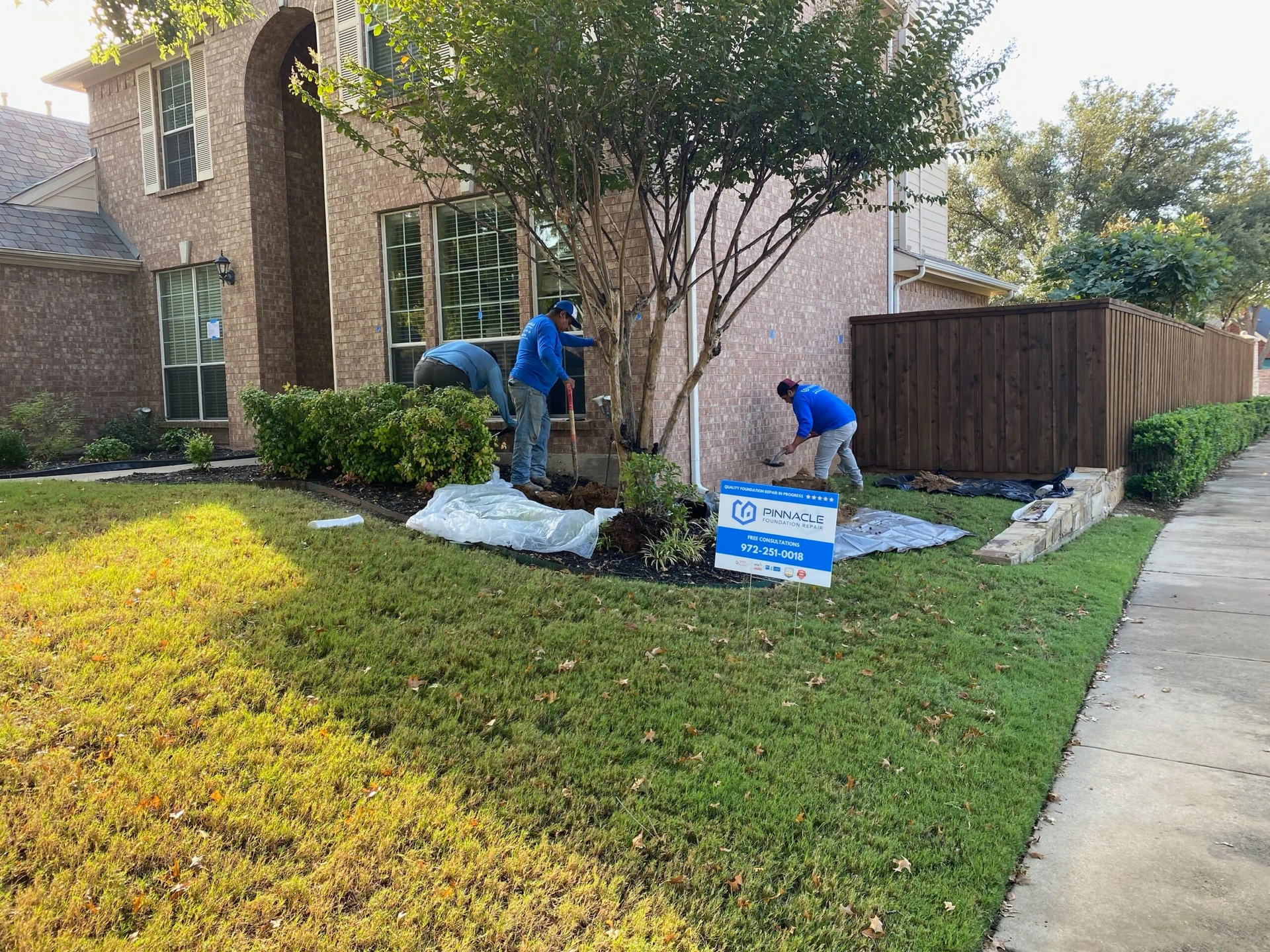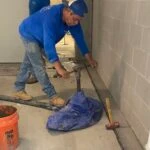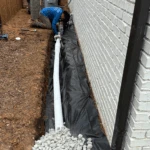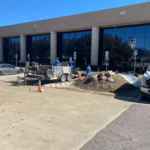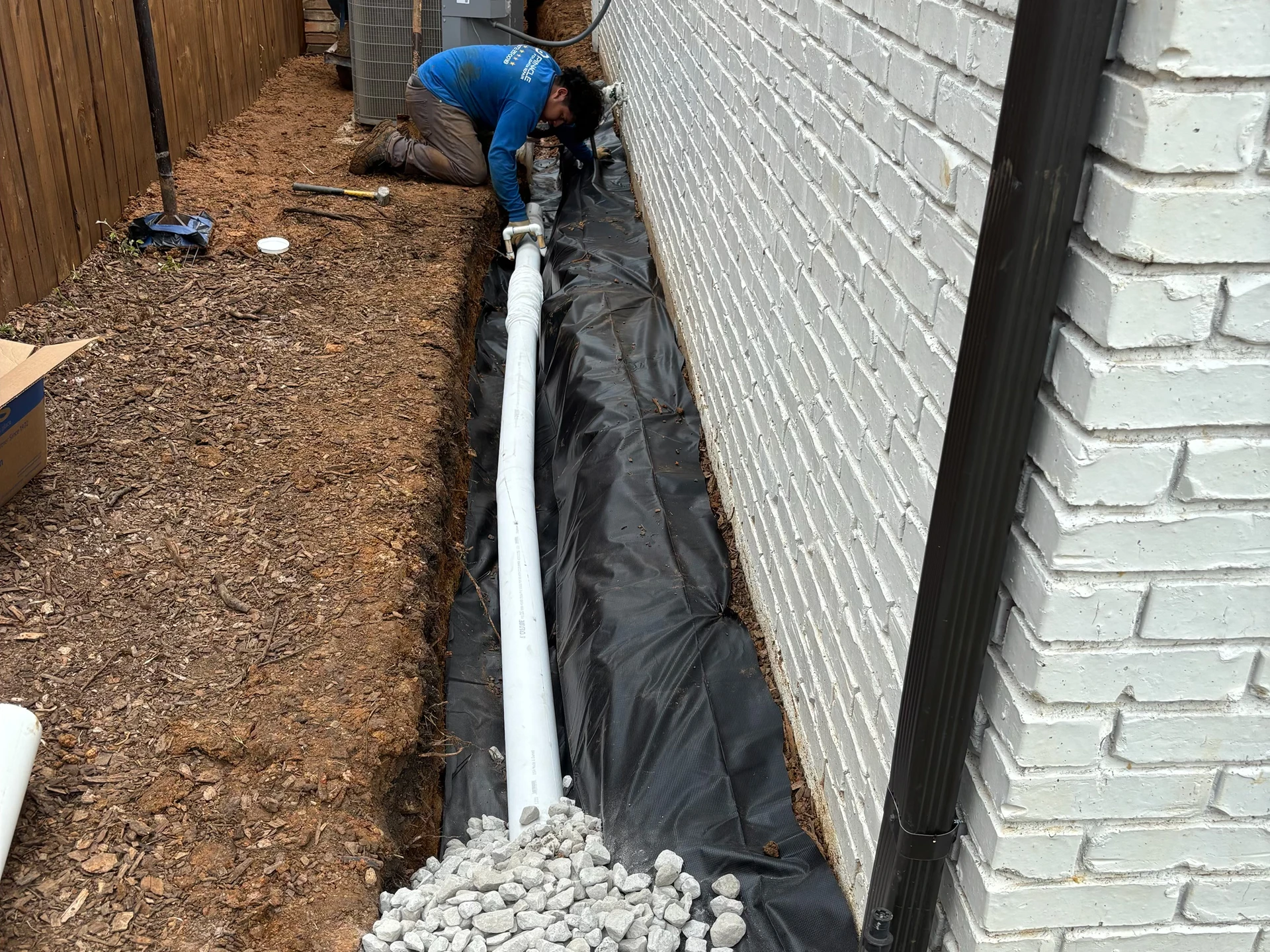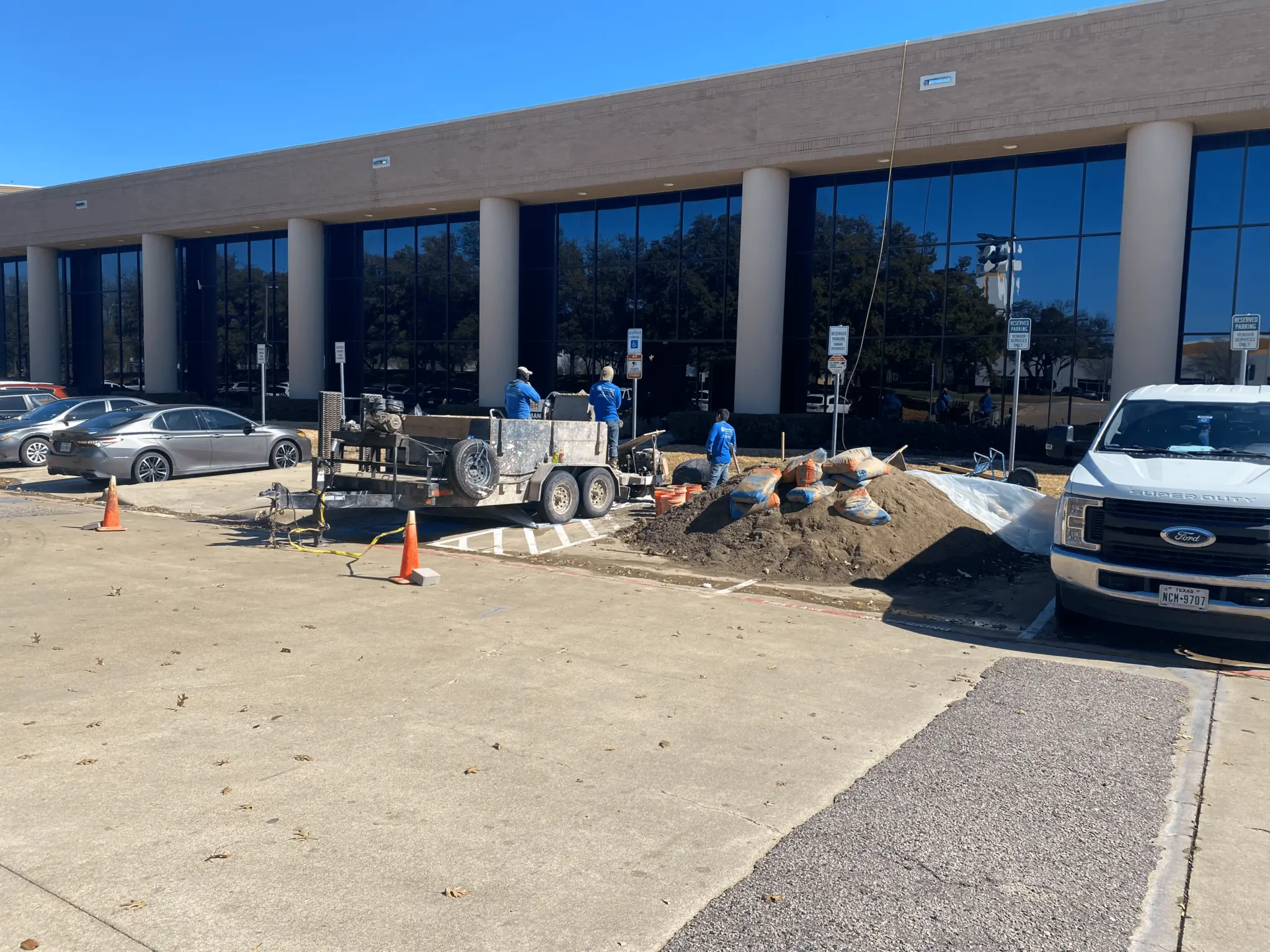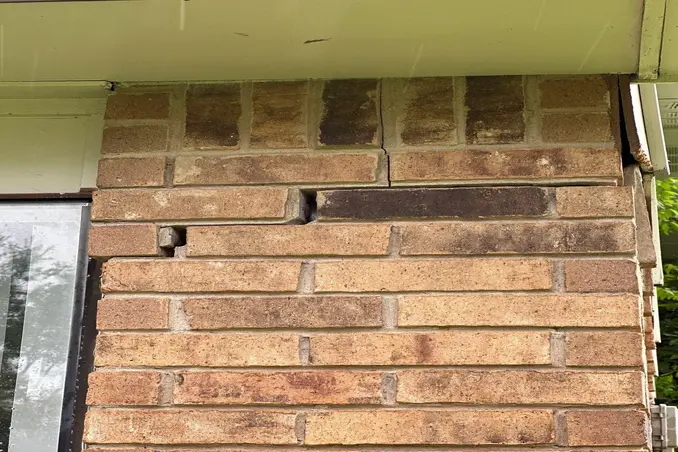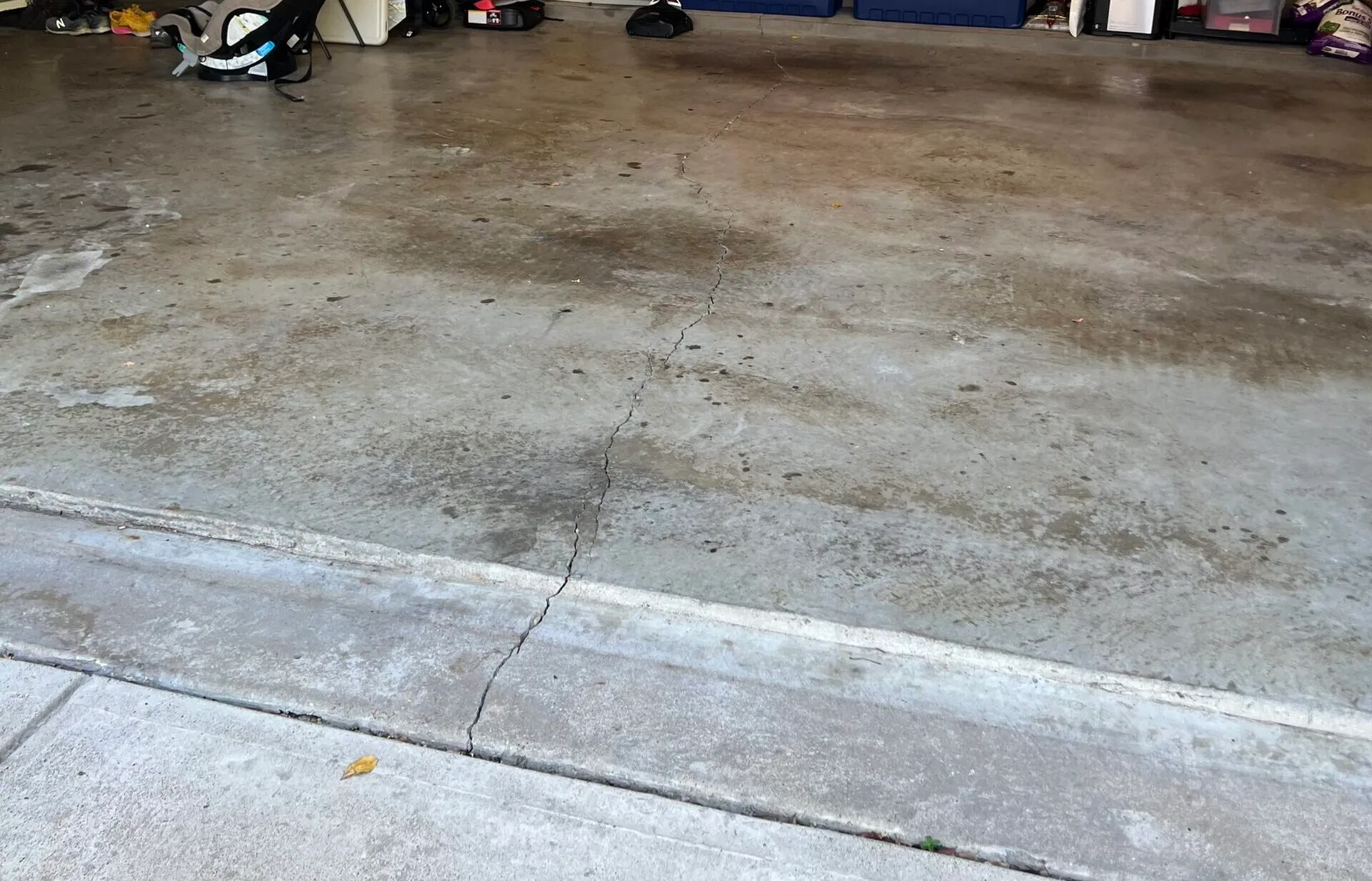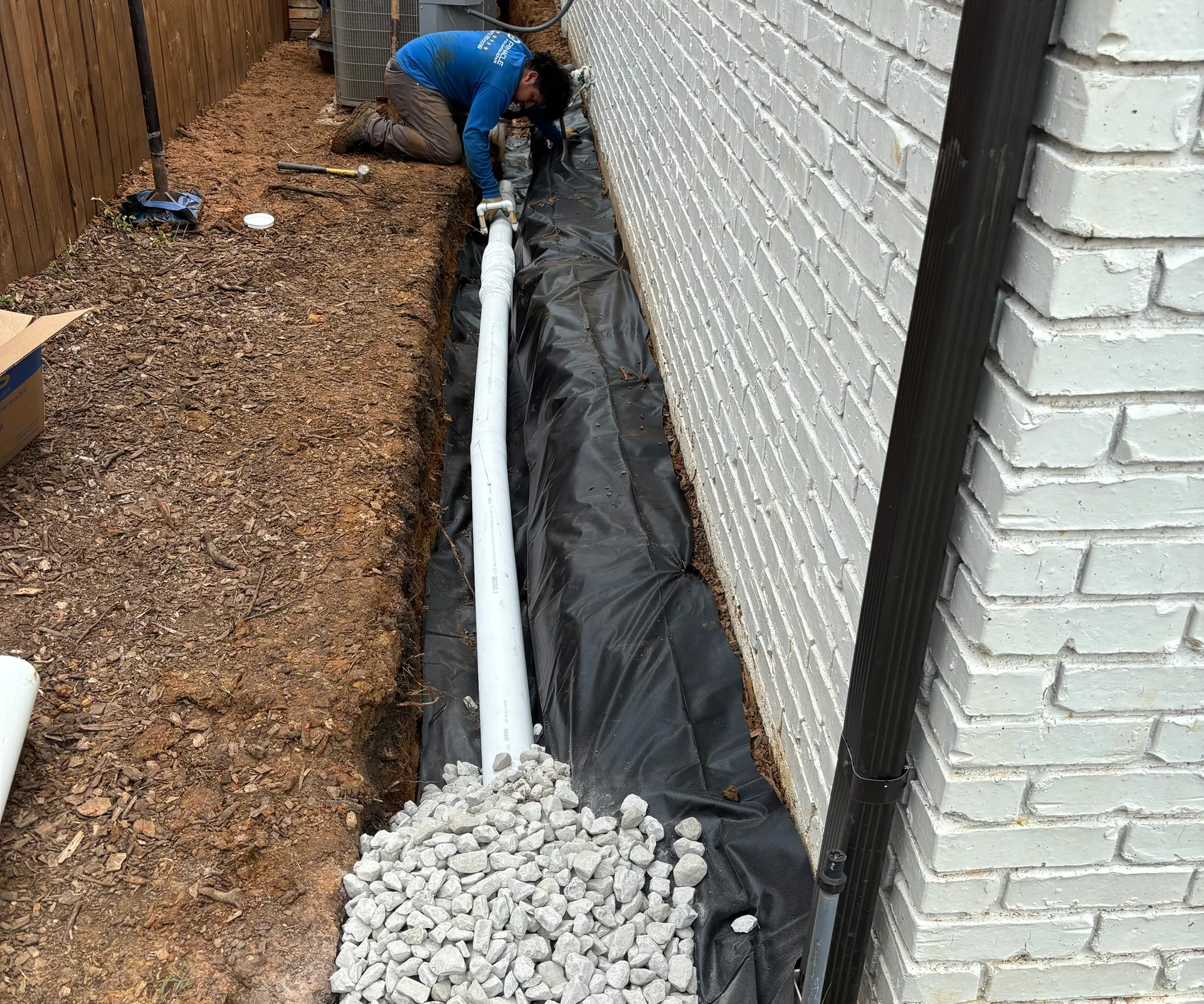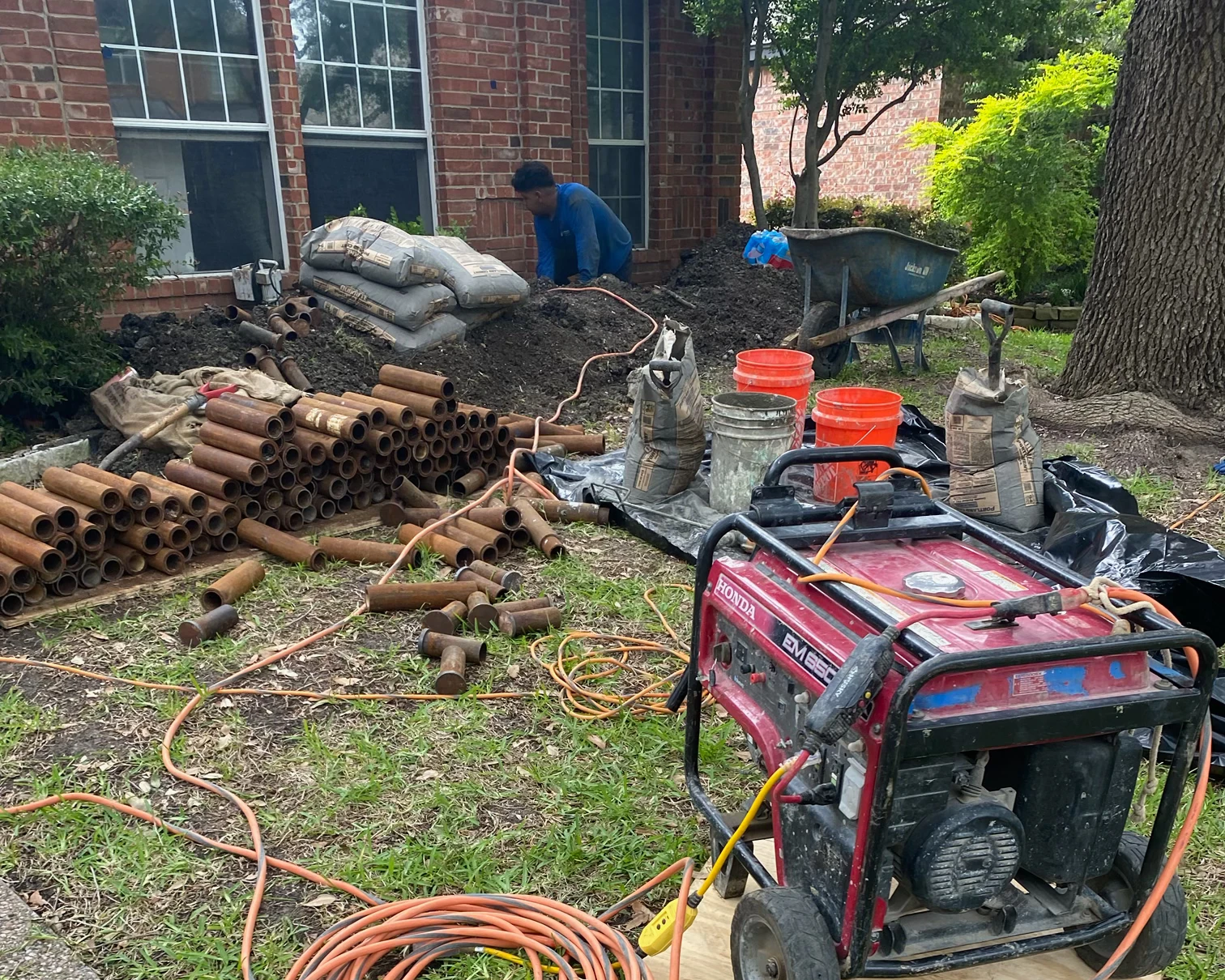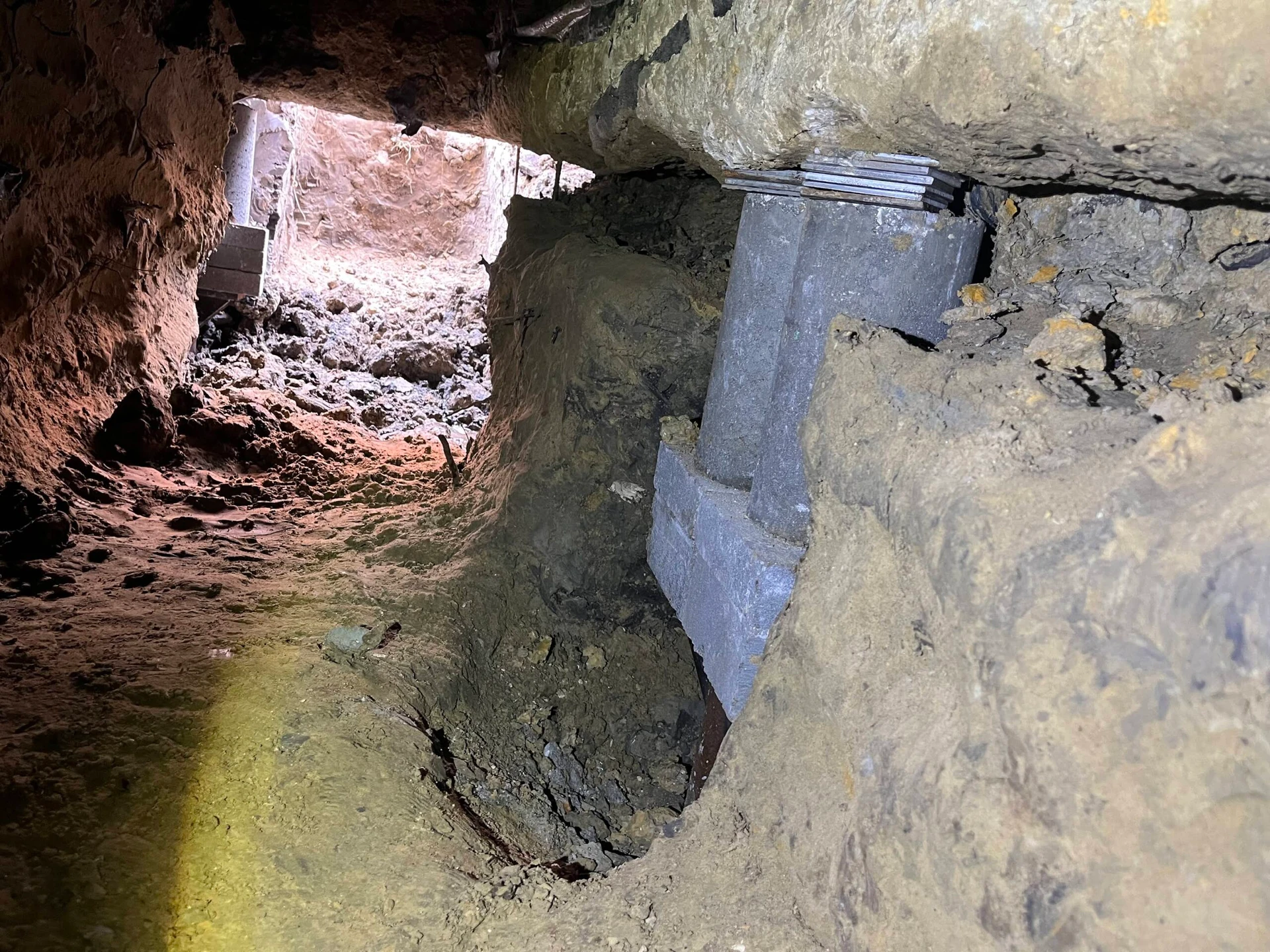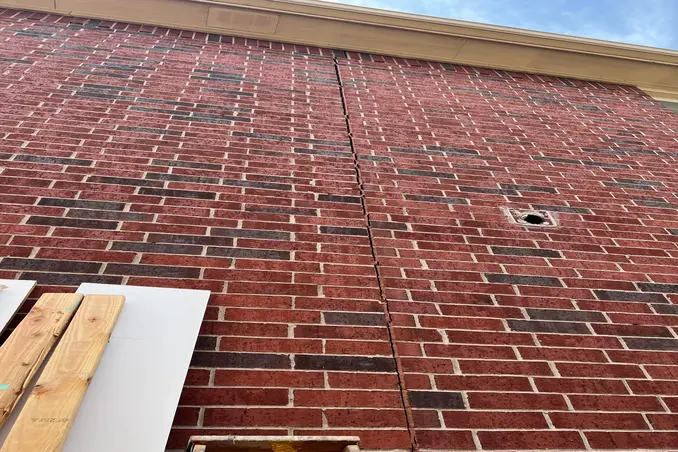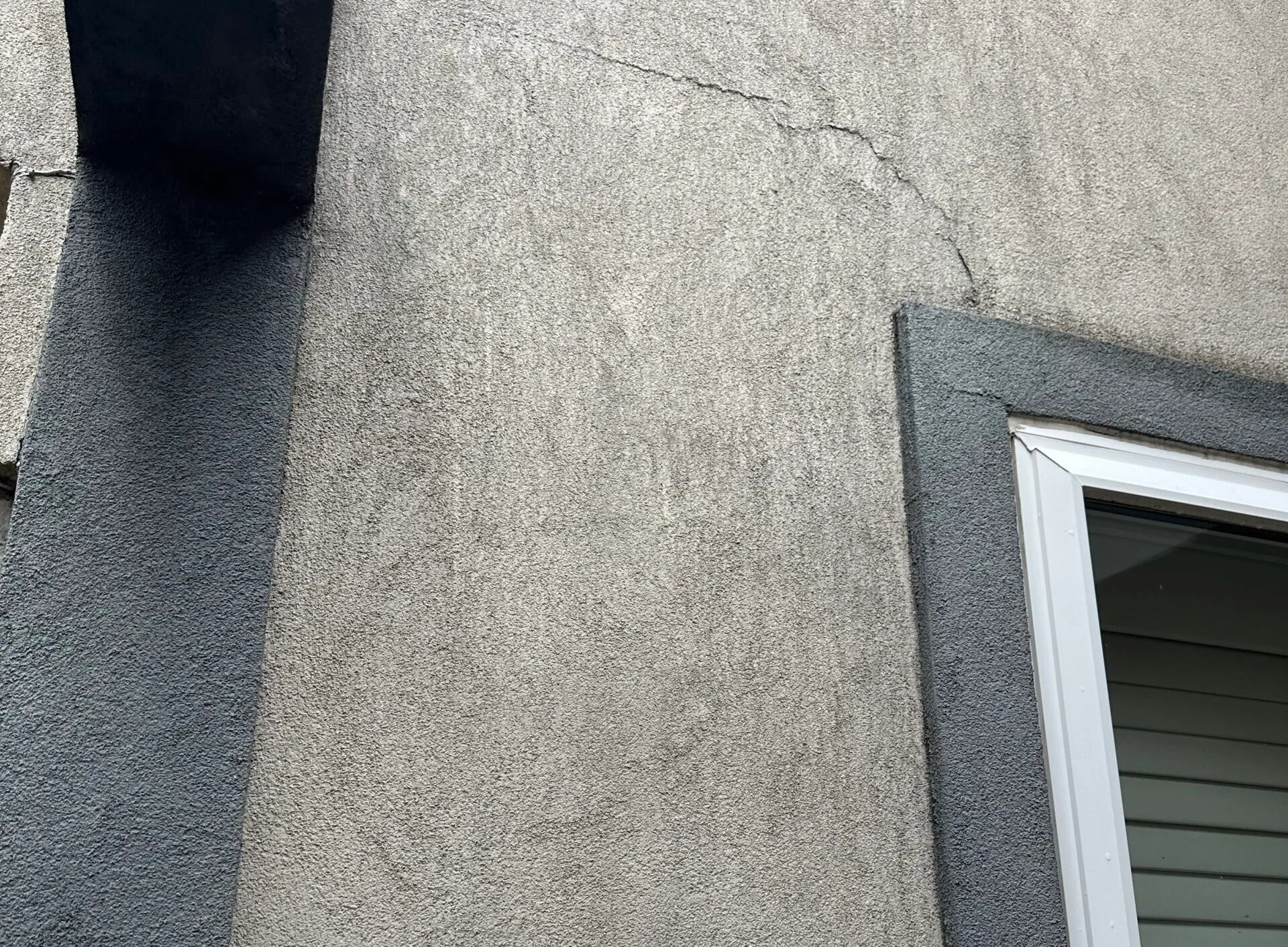As homeowners, we’re bound to come across all sorts of maintenance and repair concerns over the years. But few are as daunting as foundation issues. When you learn that your home needs foundation repair, one of the first questions that may come to mind is, “Can you live in a house during foundation repair?”
The short answer: Yes, in most cases, you can. However, there are a couple of factors to consider to ensure your comfort and safety throughout the process.
So, what exactly should you expect when living in a home undergoing foundation repair? While it depends on the specifics of your foundation’s needs, here’s what you can expect.
Understanding Foundation Repair
Not all foundation repairs are created equally. Depending on the severity of the issue and the type of foundation your home has, the scope and method of the repair can vary dramatically. The most common types of foundations in Texas include:
- Slab foundations
- Pier and beam foundations
- Crawl space foundations
Each is unique in its own right, each with its own repair techniques.
Types of Foundation Repairs that Allow You to Stay in Your Home
For the most part, homeowners can stay in their homes during residential foundation repairs. This generally includes:
Pier Installation
Whether it’s helical piers, steel piers, or concrete-pressed piers, these installations are typically unobtrusive enough that you can stay in your home. The work is usually done outside or in a crawl space with minimal indoor disruption.

Foam Injection or Slab Jacking
Slab jacking, or polyurethane foam injection, is usually a quick and non-invasive process. It helps correct sinking foundations with minimal interruption to your home life, so you can usually remain in your home during the repair.
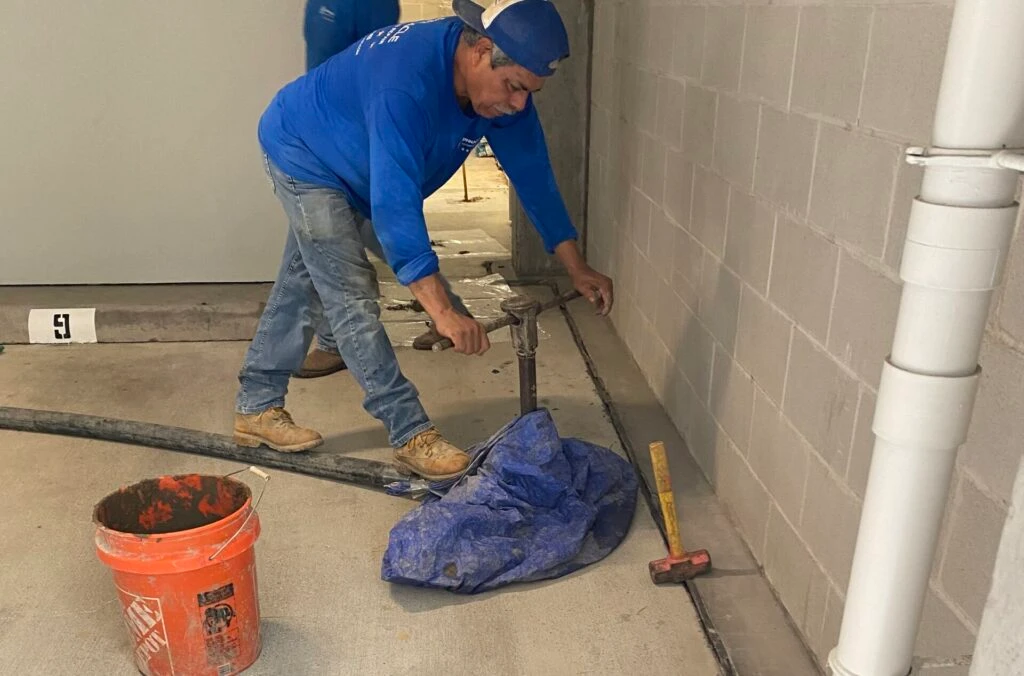
Interior Pier Work (in Select Areas)
If your home needs interior piers installed, areas of the flooring may be removed temporarily. While this can be messy, it’s usually confined to specific rooms above the area in question and doesn’t require full evacuation (although you will need to steer clear of those areas during repair).
When You Might Need to Relocate Temporarily
In rare cases, your home’s foundation repairs might require you to move out temporarily. This hinges on:
- Severity of the damage
- Structural safety
- Extent of interior disruption
- Noise or dust levels
When extensive excavation is necessary or significant indoor demolition is involved, we may recommend alternative accommodations during the most invasive stages of the process. This usually isn’t for an extended period, but it varies from project to project.
How Foundation Repair Impacts Daily Living
If your foundation repair doesn’t require you to relocate temporarily, it’s important to understand what you might deal with during the process. It’s an abrupt change from the regular ebb and flow of daily life, so having an idea of what to expect is helpful.
Noise and Vibration
Expect some noise, especially during pier driving or slab lifting. You might feel the vibrations throughout your home, but they’re generally not strong enough to cause damage to furniture or electronics.
Dust and Debris
If interior work is necessary, dust is a high possibility, especially if we need to remove flooring. We recommend covering furniture or sealing off unused rooms in these cases. While we use dust control measures, it’s a good idea to go the extra mile by covering furniture, using air purifiers, and sealing vents.

Limited Access to Certain Areas
Depending on the location of the repair, you may not be able to access certain rooms temporarily. If a must-have part of your home, like a kitchen, bathroom, or bedroom, is affected, we’ll work with you to phase the repair process for convenience.
Tips for Staying Comfortable During the Foundation Repair
If you choose to stay at home during the foundation repair, here are a few ways to prepare for a smoother experience:
- Create a plan with your contractor: Before work starts, we’ll walk you through the schedule and anticipated disruptions so you know what to expect.
- Designate “safe zones:” Reserve parts of the house as clean, quiet spaces well away from the work.
- Relocate pets and children if needed: Some pets are sensitive to loud noise, and curious kids may need extra supervision during work days.
- Protect belongings: Move fragile or valuable items away from walls or shelves, especially in repair zones.
- Adjust your daily routine: Consider working from a different part of the house or stepping out during peak noise hours.
Living Through Foundation Repair: What to Expect and How to Prepare
So, can you live in a house during foundation repair? In most cases, absolutely. With the right planning and support, you can keep on going about your daily routine while we take care of restoring your home’s structural integrity.
At Pinnacle Foundation Repair, we’re here to make that process as smooth and stress-free as possible. Ready to get started? Contact us today to get a free evaluation, and let’s talk about your foundation’s future.
Frequently Asked Questions About Living in a House During Foundation Repair
Can I use my kitchen and bathroom during foundation repair?
Yes, in most cases, you’ll still be able to use your kitchen and bathroom. If repairs take place near plumbing or under slab areas, temporary restrictions may apply, but we’ll notify you well in advance.
Are foundation repairs dangerous to live around?
Generally, no. While there may be some noise, dust, and light vibration the process is safe. We take precautions to protect your family, belongings, and structure during the entire project.
Will my utilities be affected during the repair?
Rarely. Most repairs do not require interruption to your utilities, including water, electricity, and gas. If your project requires utility shutdowns, they’re short and preplanned. We’ll let you know ahead of time if it’s necessary.
How long does a typical foundation repair take?
Timelines vary based on the project. We complete most residential foundation repairs within a few days to a week, although the specifics of your project may affect that timeframe. We’ll provide a detailed timeline after your inspection.
What should I do to prepare my home before the repair begins?
Clear access to the foundation perimeter, remove items from the walls, secure pets and kiddos, and follow any specific instructions from our team. We’ll walk you through every prep step to ensure everything is in order.

